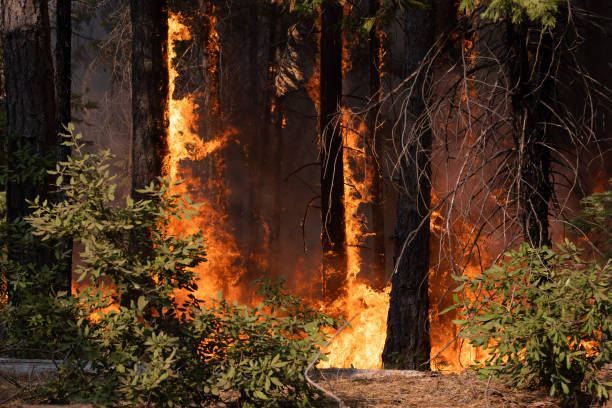The United States is grappling with severe weather conditions, including a significant heatwave affecting the upper Midwest and Northeast, and a tropical storm impacting Texas and northern Mexico.
The National Weather Service anticipates that the heatwave will intensify, reaching the eastern Great Lakes, New England, Ohio Valley, and mid-Atlantic over the weekend.
They predict widespread record high temperatures and heavy rainfall from thunderstorms in the northern Plains and Upper Midwest.
Tropical Storm Alberto, forming in the Gulf of Mexico, is expected to bring heavy rain, flooding, and strong winds to South Texas before weakening as it moves into Mexico.

In New York City, an air-quality alert is in effect as temperatures soar to 92°F (33°C), with RealFeels approaching 100°F (38°C), though conditions are expected to improve over the weekend.
In New Mexico, a wildfire near Ruidoso has devastated the area, destroying 1,400 buildings and killing two people. Governor Michelle Lujan Grisham has requested a major disaster declaration from the White House for the fires.
Maine has seen unusual heat, with Caribou and Bangor tying or setting high-temperature records. Caribou reached 96°F, matching the 2020 record, while Bangor hit 95°F, tying a record from 1995. The all-time high for Bangor is 104°F from 1935.
The extreme temperatures are linked to fluctuations in the jet stream, which can create heat domes—persistent high-pressure areas that trap heat.
Historical heat domes have caused significant death tolls, such as the 739 deaths in Chicago in 1995. Climate expert Brett Anderson from AccuWeather notes that a persistent high-pressure ridge over Mexico since early March has exacerbated the heat, limiting cold fronts and increasing drought.
He also points out that climate change and the current El Niño are contributing to these extreme conditions. Despite potential cooling from a future La Niña, global temperatures are expected to remain among the highest on record due to ongoing warming trends.

